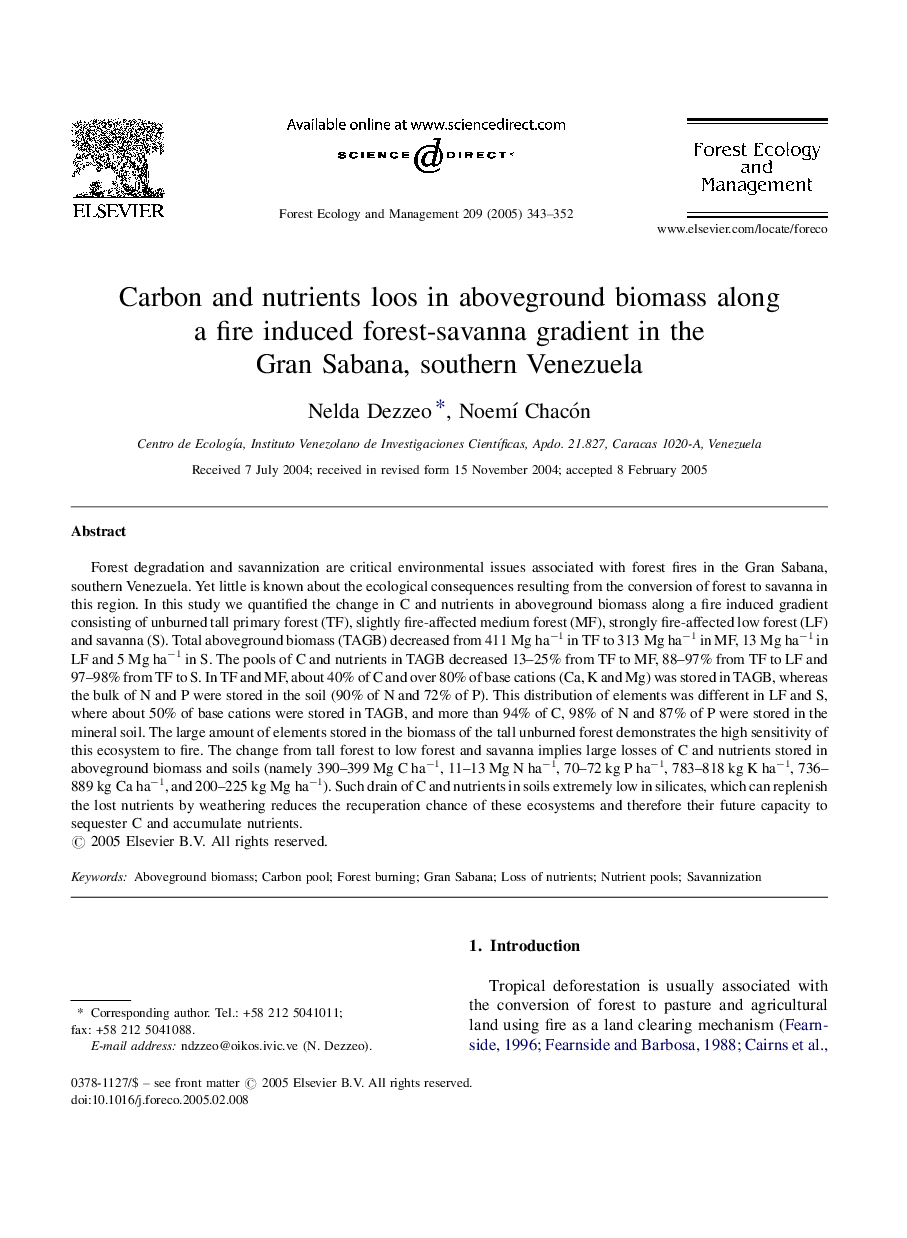| Article ID | Journal | Published Year | Pages | File Type |
|---|---|---|---|---|
| 10250897 | Forest Ecology and Management | 2005 | 10 Pages |
Abstract
Forest degradation and savannization are critical environmental issues associated with forest fires in the Gran Sabana, southern Venezuela. Yet little is known about the ecological consequences resulting from the conversion of forest to savanna in this region. In this study we quantified the change in C and nutrients in aboveground biomass along a fire induced gradient consisting of unburned tall primary forest (TF), slightly fire-affected medium forest (MF), strongly fire-affected low forest (LF) and savanna (S). Total aboveground biomass (TAGB) decreased from 411 Mg haâ1 in TF to 313 Mg haâ1 in MF, 13 Mg haâ1 in LF and 5 Mg haâ1 in S. The pools of C and nutrients in TAGB decreased 13-25% from TF to MF, 88-97% from TF to LF and 97-98% from TF to S. In TF and MF, about 40% of C and over 80% of base cations (Ca, K and Mg) was stored in TAGB, whereas the bulk of N and P were stored in the soil (90% of N and 72% of P). This distribution of elements was different in LF and S, where about 50% of base cations were stored in TAGB, and more than 94% of C, 98% of N and 87% of P were stored in the mineral soil. The large amount of elements stored in the biomass of the tall unburned forest demonstrates the high sensitivity of this ecosystem to fire. The change from tall forest to low forest and savanna implies large losses of C and nutrients stored in aboveground biomass and soils (namely 390-399 Mg C haâ1, 11-13 Mg N haâ1, 70-72 kg P haâ1, 783-818 kg K haâ1, 736-889 kg Ca haâ1, and 200-225 kg Mg haâ1). Such drain of C and nutrients in soils extremely low in silicates, which can replenish the lost nutrients by weathering reduces the recuperation chance of these ecosystems and therefore their future capacity to sequester C and accumulate nutrients.
Related Topics
Life Sciences
Agricultural and Biological Sciences
Ecology, Evolution, Behavior and Systematics
Authors
Nelda Dezzeo, Noemà Chacón,
